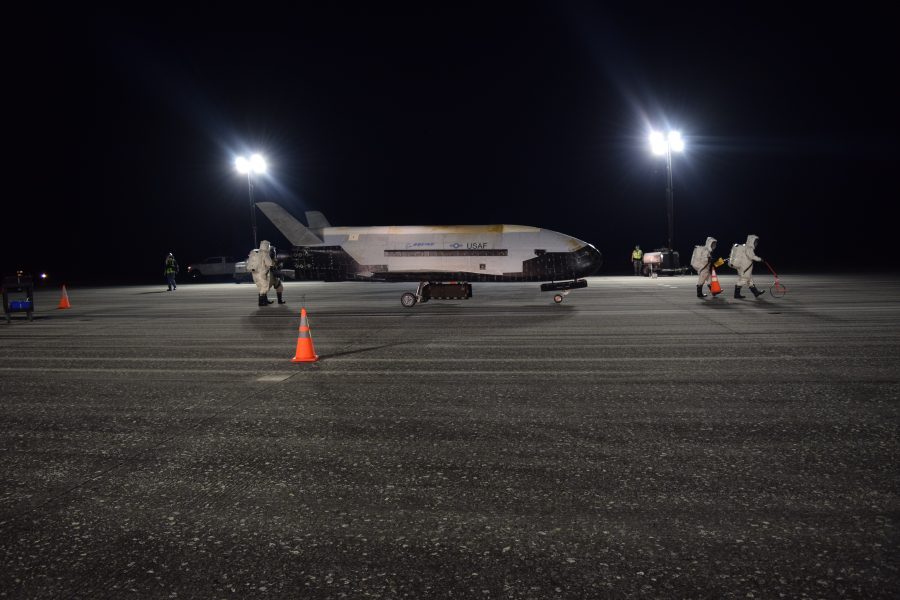The combined military and commercial team that designed and operates the Air Force’s X-37B reusable unmanned spaceplane is among nine nominees for the National Aeronautic Association’s 2019 Robert J. Collier Trophy, which recognizes great aerospace achievements.
The Collier Trophy has been awarded for 108 years, and honors “the greatest achievement in aeronautics and astronautics in America,” the association said in announcing the 2019 nominees.
Previous feats and accomplishments rewarded with the trophy include the Lockheed Martin F-22 team, the Apollo 8 and 11 moon mission teams, the Boeing 747 airliner and B-52 bomber teams, the Northrop Grumman’s Global Hawk unmanned reconnaissance aircraft team, the Lockheed Martin and Pratt & Whitney F-35 team, and the International Space Station.
The two X-37B craft, built by Boeing, have been launched on five space missions since 2010. Each mission lasted longer than the last, and the most recent of which lasted 780 days in orbit before landing. While the activities of the X-37B are largely classified, the Air Force has said that each mission tests materials, technologies, and techniques for space operations, and carries out various operational experiments that presumably are applied to future spacecraft and missions.
The Air Force has not said how long it expects its two-spacecraft fleet to continue flying, or if there will be a follow-on program.
The most recent winners of the Collier Trophy include the Automatic Ground Collision Avoidance System Team; the Cirrus Aircraft Vision Jet; the Blue Origin New Shepard Team, and the NASA/Jet Propulsion Laboratory Dawn Mission Team.
The other 2019 nominees are:
- Airborne Collision Avoidance System Team
- Bombardier Global 7500 Team
- Gulfstream G500 and G600 Team
- Hubble Space Telescope Team
- Magni500 Electric Propulsion System Team
- Project Heaviside
- Stratolaunch Carrier Aircraft Team
- Unmanned Aircraft Systems Traffic Management Team
NAA President Greg Principato said in a press release that this year’s nominees span aeronautics and astronautics and include “many new technologies and approaches to solving problems.”
The selection committee will announce its choice April 3, 2020, in Arlington, Va.
